The Function of Oil Distillation Equipment
Oil distillation equipment plays a crucial role in the distillation process, a commonly utilized technique for separating liquid mixtures. Distillation, a method of purification, entails the evaporation of a liquid followed by the condensation of the resulting vapor into a separate container. This method relies on the fact that different compounds in a mixture possess varying boiling points, causing them to vaporize at different temperatures. Through precise control of the distillation process, it becomes feasible to segregate the components of a mixture, typically yielding desired end products such as fuels, solvents, or essential oils.
The equipment utilized in oil distillation varies according to the specific needs of the application and the types of compounds present in the feedstock. Generally, it comprises a heat source for vaporizing the liquid, a condenser for cooling the vapor, and collection vessels for capturing the condensed fractions. Often, the equipment design incorporates multiple distillation stages, referred to as fractional distillation, which separates different components of the mixture based on their respective boiling points. This process facilitates the production of highly pure end products extensively utilized across various industries.
Oil distillation equipment is indispensable for enterprises engaged in oil production or refinement, including oil refineries, petrochemical plants, and even small-scale producers seeking to refine their own oil products. The operation of the equipment hinges on several fundamental principles: heating the mixture to generate vapor, segregating the components based on their distinct boiling points, and then collecting the resulting fractions.
Varieties of Oil Distillation Equipment
In the realm of oil recovery and recycling, diverse distillation equipment is accessible to cater to different requirements. Here are some prevalent types:
-
Simple Distillation Apparatus: Commonly found in educational settings or small-scale laboratories, this type comprises a flask, a condenser, and a receiver flask. While effective for separating components with distinct boiling points, simple distillation may not match the efficiency of more sophisticated systems for intricate mixtures.
-
Fractional Distillation Apparatus: An advanced technique enabling the separation of compounds with closer boiling points, widely applied in industrial settings where high-purity distillates are imperative, such as in the production of premium motor oils and perfumes.
-
Rotary Evaporators: Primarily utilized in research and development labs for solvent extraction from a sample, utilizing heat and vacuum pressure to induce rapid evaporation and subsequent condensation of the remaining solvent.
-
Steam Distillation Apparatus: Specifically designed for extracting essential oils from plant material by passing steam through it, favored in aromatherapy and cosmetic industries for producing fragrances and flavors due to its non-destructive nature.
-
Vacuum Distillation Apparatus: By employing reduced pressure, vacuum distillation achieves distillation at lower temperatures, preserving delicate compounds that might be lost at higher temperatures, suitable for processing heat-sensitive materials like herbal extracts or essential oils.
Each type caters to specific applications dependent on process requirements, such as the necessity for high precision in separating components like cannabinoids in cannabis extraction or the intricate flavor profiles of essential oils.
Factors to Consider When Selecting Oil Distillation Equipment
Choosing suitable oil distillation equipment for your enterprise demands meticulous evaluation of several factors:
-
Volume Capacity: Evaluate the volume of oil requiring regular distillation. Equipment with larger capacities can manage higher throughput but may necessitate more space and energy.
-
End Use: Deliberate on the type of oil slated for distillation. Distinct applications may call for varied equipment specifications like temperature ranges and pressure vessels tailored for specific oil types.
-
Space Constraints: Assess the available space within your facility. Skid-mounted units offer compact footprints that can be easily relocated if necessary.
-
Material Compatibility: Ensure the equipment is crafted from materials compatible with the oils you will be handling. For instance, stainless steel is often preferred for its durability and non-reactive properties.
-
After-sales Service: Seek suppliers offering comprehensive after-sales support encompassing installation guidance, maintenance services, and spare parts availability.
By carefully weighing these considerations against your specific distillation requirements, you can make an informed decision aligning with your operational capabilities and business objectives.
Insight into Oil Distillation Equipment on Alibaba.com
Alibaba.com serves as an extensive marketplace linking businesses with a broad array of suppliers offering various oil distillation equipment types. Whether in need of large-scale industrial setups or compact options for boutique producers, Alibaba.com facilitates access to a diverse selection meeting diverse business sizes and industry demands. Prioritizing quality assurance through services like Trade Assurance, Alibaba.com safeguards your purchase until delivery completion.
Alibaba.com's global outreach enables businesses from over 190 countries to procure top-notch oil distillation equipment tailored to their specific needs. The platform's mobile buying features and multilingual communication enhance procurement simplicity. With a wide product range spanning core components such as pressure vessels to machinery test reports furnished by suppliers, businesses can source required items while ensuring secure transactions—an illustration of Alibaba.com's commitment to facilitating seamless global trade.
By leveraging Alibaba.com's proficiency in linking buyers with dependable suppliers and providing effective trade solutions, businesses can streamline operations and focus on growth without compromising quality or efficiency. This dedication to facilitating convenient access to quality oil distillation equipment positions Alibaba.com as an ideal sourcing platform driving business advancement.
Frequent Queries on Oil Distillation Equipment
Utilization of Oil Distillation Equipment in Industrial Environments
Oil distillation equipment is primarily employed in industrial settings to segregate different components of crude oil, such as gases and diverse hydrocarbons, into individual parts like gasoline, diesel, and lubricants.
Distinguishing Features of an Oil Refinery vs. an Oil Distillation Plant
An oil refinery is designed to process crude oil into usable products like fuels, lubricants, and waxes, while an oil distillation plant focuses on producing high-purity items such as specialty chemicals and solvents.
Availability of Specific Oil Distillation Plants for Varying Crude Oil Types
Indeed, different oil distillation plants cater to diverse crude oil feedstocks, encompassing atmospheric, vacuum, and high-pressure distillation units, each tailored to distinct oil quality and product specifications.
Key Considerations in Choosing Oil Distillation Equipment
Key factors include the type of crude oil being processed, desired end products, operating pressure and temperature ranges, material construction for corrosion resistance, and the availability of after-sales services.
Diversification of Oil Distillation Equipment Applications Beyond Petroleum-based Fuels
Oil distillation equipment is versatile, serving to produce an array of products like waxes, lubricants, tar, and various chemicals owing to its capability to segregate components based on varying boiling points.
Impact of Material Choice on Oil Distillation Equipment Durability
The construction material, such as stainless steel or specially coated carbon steel, influences the longevity and sturdiness of oil distillation equipment by dictating its resistance to operational chemicals.
Significance of After-sales Services in Oil Distillation Equipment
After-sales services like online support, overseas service engineers, video technical support, and maintenance and repair services are vital for ensuring continual operational assistance and addressing intricate machinery issues.
Role of Voltage in Oil Distillation Equipment Selection
Voltage compatibility with local power supply is essential to ensure proper equipment operation without risk of damage. Most oil distillation equipment offers multiple voltage options matching regional electrical standards.
Considerations for Choosing Between Single-stage and Multi-stage Distillation Plants
The decision between single-stage and multi-stage distillation plants hinges on the desired purity level of the end product and the priority assigned to energy efficiency. Multi-stage plants typically excel in energy efficiency but may entail higher complexity and operational costs.
Determining Suitability of Oil Distillation Equipment for Specific Industries
Assessing the industry's distinct needs, such as oil type, desired purity levels, energy efficiency concerns, and operational conditions, aids in selecting machinery explicitly designed for particular applications like fuel or lubricant production.
Possibility of Customizing Oil Distillation Equipment to Meet Business Requirements
Many suppliers offer customization options for oil distillation equipment based on business specifications, encompassing alterations in size, material composition, capacity, and additional features.
Maintenance Requirements for Oil Distillation Equipment
Regular maintenance is crucial to ensure the effective operation of oil distillation equipment, involving routine inspections, cleaning, lubrication checks, and timely replacement of worn components.
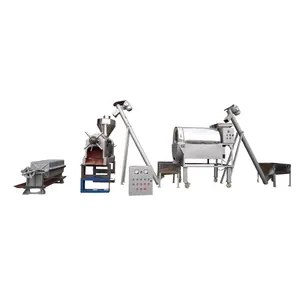










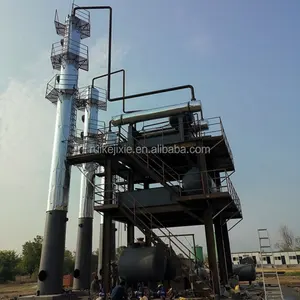





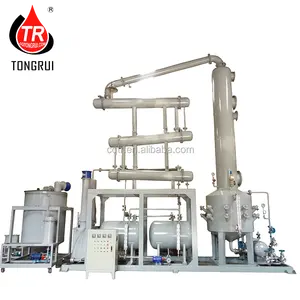

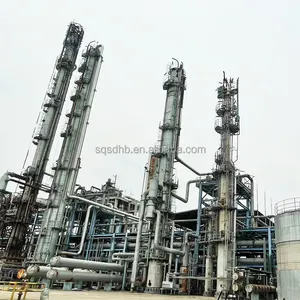




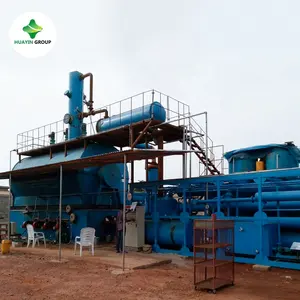



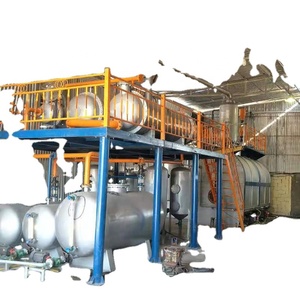
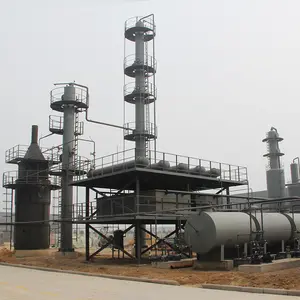
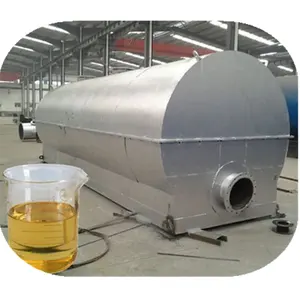




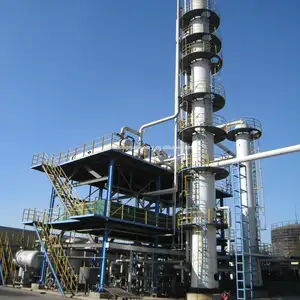




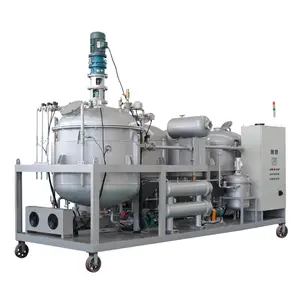

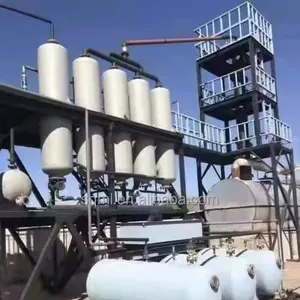

































 浙公网安备 33010002000092号
浙公网安备 33010002000092号 浙B2-20120091-4
浙B2-20120091-4